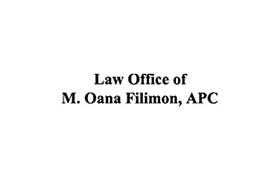Claremont Adoption Lawyer, California
Sponsored Law Firm
-
 x
x

Click For More Info:
-
Law Office of M. Oana Filimon, APC
940 West 17th Street Suite D Santa Ana, CA 92706» view mapDivorce & Family Law A Law Firm That Cares
Let The Law Office of M. Oana Filimon, APC handle all of your Divorce and Family Law legal matters today!
714-571-0375
Frank J. Prainito
Alimony & Spousal Support, Child Support, Adoption, Children's Rights
Status: In Good Standing
Brian George Thorne
Alimony & Spousal Support, Child Support, Adoption, Children's Rights
Status: In Good Standing Licensed: 39 Years
 Oana Filimon Santa Ana, CA
Oana Filimon Santa Ana, CA AboutLaw Office of M. Oana Filimon, APC
AboutLaw Office of M. Oana Filimon, APC
